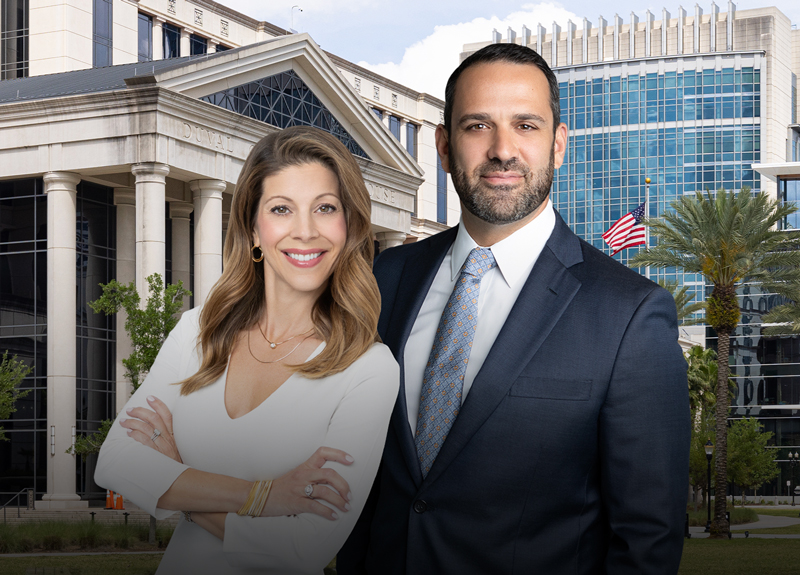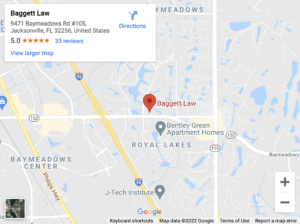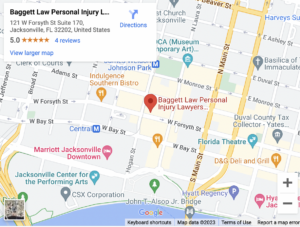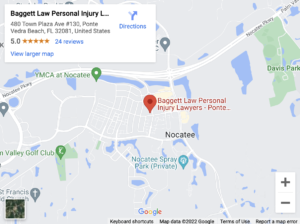
A personal injury case arises when one person suffers a physical injury due to someone else’s act or failure to act.
Typically, the person who caused the injury must have committed some form of misconduct, although liability without fault is possible in some instances.
The victim who suffered the injury can demand compensation for their injuries and for the psychological trauma that accompanies these injuries.
What is a Contingency Fee?
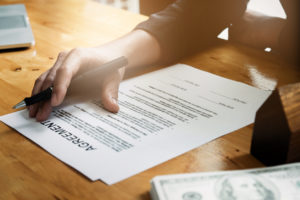
Most personal injury victims need a lawyer to help them win their claim.
However, many victims think they cannot afford to pay a personal injury lawyer.
Under a contingency fee arrangement, favored by most personal injury lawyers, the victim agrees to pay the lawyer a certain percentage of whatever amount the lawyer wins for them. This allows victims with strong claims but little money to gain access to the Florida civil court system.
What is an Initial Consultation?
Most personal injury lawyers offer free initial consultations. In an initial consultation, you describe your case. The lawyer will ask you questions, answer your questions, and evaluate your case.
Both you and your lawyer will want to determine whether you have a viable claim. If you do, the lawyer might offer to represent you on a contingency fee basis.
What Are the Different Types of Personal Injury Claims?
Personal injury claims come in the following varieties:
- Negligence claims: Negligence is a legal term that means something like carelessness.
- Gross negligence claims: Gross negligence means extreme negligence. A finding of gross negligence can be used to justify punitive damages in addition to the compensatory damages that a victorious victim will ordinarily receive.
- Intentional misconduct claims: Intentional misconduct could mean a road rage incident where someone deliberately causes your car to crash. It could also mean a criminal assault.
- Vicarious liability claims: Vicarious liability occurs when one party bears liability for the misconduct of another party. A common example is when an employer bears liability for the misconduct of its employee.
- Strict liability claims: Strict liability means liability without proof of fault. Product liability claims, for example, do not require proof of fault.
Negligence is by far the most common basis of a personal injury claim.
What Do You Have to Prove to Win a Personal Injury Claim?
To win a personal injury claim based on negligence, you must prove the following four elements by a “preponderance of the evidence”:
- Duty: The defendant owed a duty of care to the injured victim. This duty can be anything from the duty to drive safely to the duty to perform open-heart surgery with the skill of a competent cardiologist.
- Breach of Duty: The defendant must have breached their duty of care in some way. Sometimes it takes an expert to determine whether the defendant breached their duty of care (this is common in medical malpractice claims, for example).
- Causation: The defendant’s breach of duty was the foreseeable and direct cause of the damages that the victim suffered.
- Damages: The victim suffered damages that included a physical injury. Although the victim can recover for psychological damages such as emotional distress, there must have been an underlying physical injury. The victim must prove every dime of the damages they claim.
Under the “preponderance of the evidence” standard of proof, the victim must prove that all four of the foregoing elements are “more likely than not” to be present.
Keep in mind that the elements of some types of personal injury claims, such as strict liability claims, differ from the ones listed above.
What Kinds of Compensation Can You Demand in a Personal Injury Case?
The victim of a personal injury can demand the following types of damages to the extent they suffered them.
Economic Damages
Economic damages are tangible, easy-to-value damages, including:
- Past, present, and future medical expenses
- Past, present, and future lost earnings
- Related expenses such as child care and housekeeping that you must hire someone else to perform because of your injury
You can claim other tangible economic losses arising from your accident.
Non-Economic Damages
Non-economic damages are intangible damages that are inherently difficult to quantify.
They include:
- Physical pain and suffering
- Emotional distress
- Loss of consortium (loss of sexual function and companionship)
- Loss of enjoyment of life
- Permanent disfigurement, such as loss of a limb
Amounts awarded for non-economic damages often far exceed amounts awarded for economic damages.
Punitive Damages
Punitive damages are available only if the defendant’s act or omission amounted to gross negligence or intentional misconduct. Courts are reluctant to award punitive damages even when the plaintiff wins the case.
What is Comparative Fault?
Under Florida’s “modified comparative fault” statute, the court assigns a percentage of fault to each party in the lawsuit.
For example, if the plaintiff was 30% responsible for the cause of the accident, their awarded damages will be reduced by 30%. This allows injured victims to recover compensation even if they were partially to blame for the accident.
However, Florida also has a 51% rule in place. If your assigned percentage reaches 51% or more, you’ll be barred from recovering compensation.
Fortunately, a skilled personal injury attorney can represent your interests and aim to ensure you aren’t assigned more blame than is fair.
How Does Florida’s “No-Fault” System Affect Auto Accident Claims?
Unfortunately, Florida’s car accident compensation system is unfavorable to personal injury victims, especially those suffering a catastrophic injury.
Florida motorists don’t have to purchase bodily injury liability insurance. They’re required to purchase no-fault Personal Injury Protection (PIP) insurance, which covers the insured regardless of who was responsible for the collision.
However, it only covers certain damages, such as a portion of your reasonable medical expenses and lost wages.
Be sure to purchase more than the mandatory minimum insurance coverage if you drive in Florida. If you have already suffered an accident, speak to your lawyer about your options.
How Do Insurance Policy Limitations Affect Personal Injury Claims?
Most personal insurance claimants rely on insurance companies to pay their claims. A problem arises when the amount of your claim exceeds insurance policy limits, and the defendant lacks the personal resources to pay the difference.
One way around this is to find a second defendant with the resources to pay your claim.
This might include:
- The manufacturer of a defective product that contributed to the accident
- The employer of an on-duty, at-fault employee who was acting within the scope of employment at the time of the accident
- A company that owns unsafe premises that contributed to your accident
Many other possibilities exist. Speak to your lawyer because they will know how to get you the compensation you deserve for your personal injury claim.
Should You Settle Your Claim or File a Lawsuit?
In many cases, the correct answer is “both. Almost any claimant or defendant would prefer to settle out of court. Remember, however, that you can settle your claim any time before the jury announces their verdict.
Filing a lawsuit offers certain advantages, including access to the pretrial discovery process, that could pressure the defendant to settle, allowing you to withdraw your lawsuit. If not, you can always go to trial.
What is the Statute of Limitations in Florida?
The statute of limitations sets the deadline by which you must file a lawsuit. In Florida, the personal injury statute of limitations was recently changed. There’s a four-year time limit for accidents occurring on or before 3/23/2023, and a two-year time limit for those that take place after that date.
If the accident killed the victim, the plaintiff usually has only two years from the date of death to file a wrongful death claim.
There are many exceptions to these statute of limitations deadlines; contact an attorney to determine the appropriate timeline for your specific case.
Contact a Florida Personal Injury Lawyer For Help With Your Personal Injury Case
You deserve full compensation if you have suffered a physical injury that was somebody else’s fault.
If you are unsure whether you have a valid claim, that is all the more reason to schedule a free consultation with an experienced Florida personal injury lawyer.

